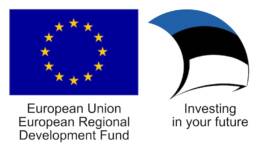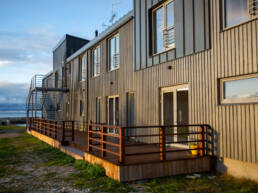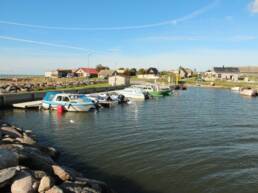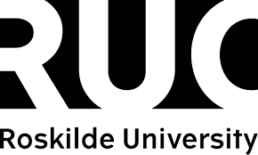Designing Human Technologies 8.0
October 3 to 5 2022, in Tallinn, Estonia
About
The doctoral course takes place from October 3 to 5, 2022 in Estonia. The three day course (3 ECTS) is organised by Tallinn University in collaboration with University of Trento, University of Roskilde, IT University of Copenhagen and Reykjavik University. Meals, shared rooms and transportation from Tallinn will be provided for up to 20 members of the doctoral course. Travel to the location is organised from Tallinn city centre. We expect to leave Tallinn at 10AM on October 3rd and to be back in Tallinn around 4PM on October 5th.
Topic
Designing Human Technologies is a broad (participatory) design-oriented research approach with a central human principle of participation and ethical concerns. Common goals of research activities in this field include being constructive and solution-oriented in close dialogue with citizens and users. Deep analysis of how designs are used and enter the daily life of their users as well as innovative design solutions are the core of this course. The human principle includes involving users and main interest groups in the design and evaluation of the ability of design artefacts to meet the goals. Technology is understood in a broad sense including information and communication technologies, sustainable environmental technologies, energy technologies, and technologies for design in urban, nature, or other spatial settings.
Purpose & format
We meet to discuss our experiences in relation to doctoral work in the rich and diverse field of designing human technologies. The course is a blend of lectures and discussions in small groups. Invited lectures by senior academic staff present key theories, methodological reflections and novel approaches within the field. Discussions will take place in groups of five doctoral students and two faculty members, discussing the position papers of the students. Group discussions will dedicate one hour to each position paper, which will be divided into (max) 10 minutes of informal presentation and 50 minutes of discussion. Students will present each other’s papers not their own paper. In addition, the course provides opportunities for networking with other doctoral students and senior faculty in the field of designing human technologies, thereby enriching relations among those who also attended last year’s editions and providing an entry point for those who did not.
Schedule
| Monday, October 3 | Tuesday, October 4 | Wednesday, October 5 |
| Until 9:00 Breakfast |
Until 9:00 Breakfast |
|
| 9:00 – 11:00 Talk by Tariq Zaman on Using Sketches to Negotiate Interaction Protocols for “Research in the Wild” |
9:00 – 11:00 Talk by Vincenzo D’Andrea on Conversation on Ethics in Participatory Design |
|
| 10:00 – 11:00 Group discussions (session 1) |
10:00 – 11:00 Group discussions (session 5) |
|
| 11:00 Pick-up from Tallinn University |
11:00 – 12:00 Group discussions (session 2) |
11:00 – 12:00 Group discussions (session 6) |
| 12:00 – 13:00 Talk by Jesper Simonsen on Effects-Driven IT Improvement: Pursuing local post-implementation opportunities |
12:00 – 13:00 Pop-up contributions, summing-up, evaluation, reflection |
|
| 13:00 – 14:00 Welcome and lunch |
13:00 – 14:00 Lunch |
13:00 – 14:00 Lunch and departure |
| 14:00 – 15:00 Talk by Mika Yasuoka Jensen on Can participatory design travel beyond culture? Participatory design and living lab: Theory and practice |
14:00 – 15:00 Talk by Merja Bauters on What happens before and behind the codesign workshop |
16:00 Drop-off at Tallinn University |
| 15:00 – 17:00 Talk & Workshop by Marta Kristín Lárusdóttir on User Centred Design Sprint: Inclusive Process for Concept Design |
15:00 – 16:00 Group discussions (session 3) |
|
| 16:00 – 17:00 Group discussions (session 4) |
||
| 17:00 – 18:00 Free time |
17:00 – 18:00 Free time |
|
| From 18:00 Dinner |
From 18:00 Dinner |
Synopsis of talks and workshops
Jesper Simonsen
Effects-Driven IT Improvement: Pursuing local post-implementation opportunities
I have for many years been researching and developing an effects-driven approach to participatory design. This approach – Effects-Driven IT Improvement – has now been published as a method-paper, summarising and building on our experiences from the past decade of research. I will present an outline of this paper, the approach and provide some examples of how it is used by masters and PhD students.
Readings
Marta K. Lárusdóttir
User Centred Design Sprint: Inclusive Process for Concept Design
Integrating User-Centred Design (UCD) methods into the first phases of software development projects has its challenges. A new process called the User-Centred Design Sprint process, UCD Sprint for short, has been suggested to support the project team during concept design. The UCD Sprint appeals to researchers and developers working in the concept design phase of designing software products, focusing on users that might be different from the developers. Participants will get an introduction to design sprints and the UCD Sprint process in particular. Participants will practice a method that is part of the sprint: the User Group Analysis. The session concludes with a discussion on why, when, and how to use the UCD Sprint process.
Tariq Zaman
Using Sketches to Negotiate Interaction Protocols for “Research in the Wild”
“Research in the wild” is increasingly reported in the PD literature. However, many researchers lack the skills and knowledge to build, develop and maintain the relationship, as many interactions “in the wild” are based on assumptions. In this session, I will test SKETION (SKEtching InteracTION), a visual tool we designed with our partner indigenous community to train young researchers to communicate the interaction guidelines produced in the form of sketches.
Readings
Goagoses, N., Winschiers-Theophilus, H., & Zaman, T. (2020). Community protocols for researchers: using sketches to communicate interaction guidelines. Ai & Society, 35(3), 675-687.
Mika Yasuoka Jensen
Can participatory design travel beyond culture? Participatory design and living lab: Theory and practice
Participatory Design (PD) is one of the key approaches for designing Human Technologies. Taking humans, organisations and their relations into consideration in designing IT systems, PD contributes to developing a secure and resilient as well as efficient well-being digital society. In our highly forthcoming digitalised society, PD born in Scandinavia has the potential to contribute to the humaine advancement of human technologies around the world.
In this talk, Mika will discuss whether participatory design travel beyond Scandinavian culture and, if so, how, considering what PD can do to design IT system that improve people’s well-being beyond cultures. Mika will introduce some PD cases conducted in Japan, both in IT system development and innovation projects, and share learnings from her PD projects outside Scandinavia. Finally, discuss the possibility of PD scalability.
Vincenzo D’Andrea
Conversation on Ethics in Participatory Design
After sharing a common view on what ethics is and the different orientations that we have on that topic, I’ll stimulate participants in a discussion on where they see ethical issues in their own research.
Readings
Robertson, T., & Wagner, I. (2012). Ethics: Engagement, representation and politics-in-action. In Routledge international handbook of participatory design (pp. 84-105). Routledge.
Merja Bauters
What happens before and behind the codesign workshop?
Often it seems that a codesign workshop is easy and fast to execute, come up with some canvas for participants to work with, inspirator cards, clay etc to fiddle on. However, there are issues to consider, background research to do and negotiate before starting to figure out what should be on the canvas.
Readings
Venue
DHT 8.0 will take place in Ristna Sadam, Estonia. RISTNA SADAM is a historic port located on the northwestern coast of Estonia. In the harbour guest house, there are also conference rooms and you can appreciate beautiful sunsets in the restaurant. A hot sauna is available for our guests. Also, there are Ristinina paebank, Alliklepa and Keibu sandy beaches and mushroom and berry forests nearby. The Rannik hiking trail allow you to spot the spring-autumn migration of birds pass us by.
Guest lecturers
We invite faculty with proven expertise and a solid research track in interaction design, community centred design, values centred design, user centred design and user studies, to join this edition of the course as a guest lecturer. Should you be interested, please let us know before September 1st.
Call for participation
Application deadline: August 8, 2022 (extended to September 12)
Applications are to be submitted online. The application form consists of your contact data, short description of your research topic and a short explanation of your motivation for participating in the course.
Notification of admission: August 15, 2022 (September 12 for later applications)
Notifications are sent by email, and, if accepted, you’ll be given the full programme and further instructions. 20 PhD students will be admitted to the course.
Position paper submission deadline: September 5, 2022 (extended to September 19)
All participants are expected to submit a position paper (up to 6 pages, excluding references) elaborating on their research problem, research questions, theories, methods and a selection of achieved and/or expected outcomes.
The template for the position paper is available here.
Organizers
Faculty
David Lamas, Tallinn University
Merja Bauters, Tallinn University
Jesper Simonsen, Roskilde University
Mika Yasuoka Jensen, Roskilde University
Vincenzo D’Andrea, University of Trento
Marta Kristín Lárusdóttir, Reykjavik University
Tariq Zaman, University of Technology Sarawak
Local organizers
Kadri Mäger, Tallinn University
Contacts
For further enquiries contact kadri.mager@tlu.ee










